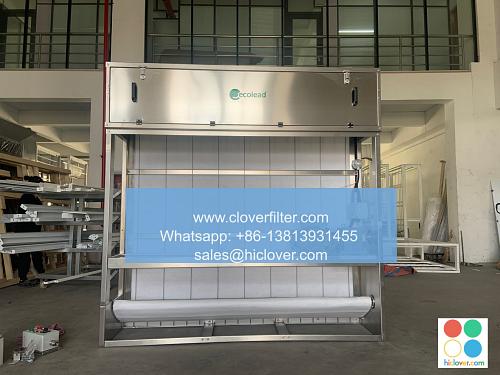The Importance of Air Filter Prioritization for Industrial Settings

In industrial settings, maintaining a clean and healthy environment is crucial for the well-being of employees, equipment, and overall productivity. One often overlooked aspect of industrial maintenance is air filter prioritization. Effective air filtration is essential for removing airborne contaminants, such as dust, pollen, and other pollutants, which can have severe consequences on industrial processes and worker health. In this article, we will highlight the importance of air filter prioritization for industrial settings, emphasizing its significance in various application areas, including industrial hygiene, air quality management, and equipment protection.
Industrial Hygiene and Airborne Contaminants
Industrial hygiene is a critical aspect of workplace safety, and air filter prioritization plays a vital role in maintaining a healthy environment. Airborne contaminants, such as particulate matter (PM), volatile organic compounds (VOCs), and microorganisms, can cause respiratory problems, allergic reactions, and other health issues. By prioritizing air filter maintenance and replacement, industrial facilities can minimize the risks associated with airborne contaminants, ensuring a safer working environment for employees.
Air Quality Management and Energy Efficiency
Effective air quality management is essential for industrial settings, as it directly impacts energy efficiency, equipment performance, and product quality. Air filters play a crucial role in maintaining optimal air quality by removing contaminants and preventing airborne particle accumulation. By prioritizing air filter maintenance, industrial facilities can reduce energy consumption, minimize equipment downtime, and improve overall productivity. Additionally, energy-efficient air filters can help reduce costs and minimize the environmental impact of industrial operations.
Equipment Protection and Maintenance
Air filter prioritization is also essential for equipment protection and maintenance. Airborne contaminants can cause corrosion, wear and tear, and equipment failure, leading to costly repairs and downtime. By maintaining effective air filtration systems, industrial facilities can prevent equipment damage, reduce maintenance costs, and extend the lifespan of critical equipment. Furthermore, predictive maintenance strategies can be implemented to identify potential air filter issues before they become major problems, minimizing downtime and optimizing equipment performance.
Application Areas and Industry-Specific Solutions
Air filter prioritization is crucial in various industrial settings, including:
* Food processing and beverage manufacturing, where sanitation and air quality control are essential for product safety and quality.
* Pharmaceutical and biotechnology industries, where cleanroom environments and strict air quality standards are required.
* Aerospace and automotive manufacturing, where precision engineering and equipment protection are critical.
* Chemical processing and petrochemical industries, where hazardous materials and airborne contaminants pose significant risks to employee health and equipment safety.
In conclusion, air filter prioritization is essential for industrial settings, as it directly impacts industrial hygiene, air quality management, and equipment protection. By highlighting the importance of air filter maintenance and replacement, industrial facilities can minimize risks, reduce costs, and optimize productivity. As industries continue to evolve and grow, the need for effective air filter prioritization will become increasingly important, emphasizing the need for industry-specific solutions and application-area expertise. It seems like you’re ready to start a conversation or ask a question but haven’t specified the topic yet. What’s on your mind? Need help with something, want to discuss a particular subject, or perhaps you’re looking for recommendations? I’m here to help with any questions or topics you’d like to explore!

